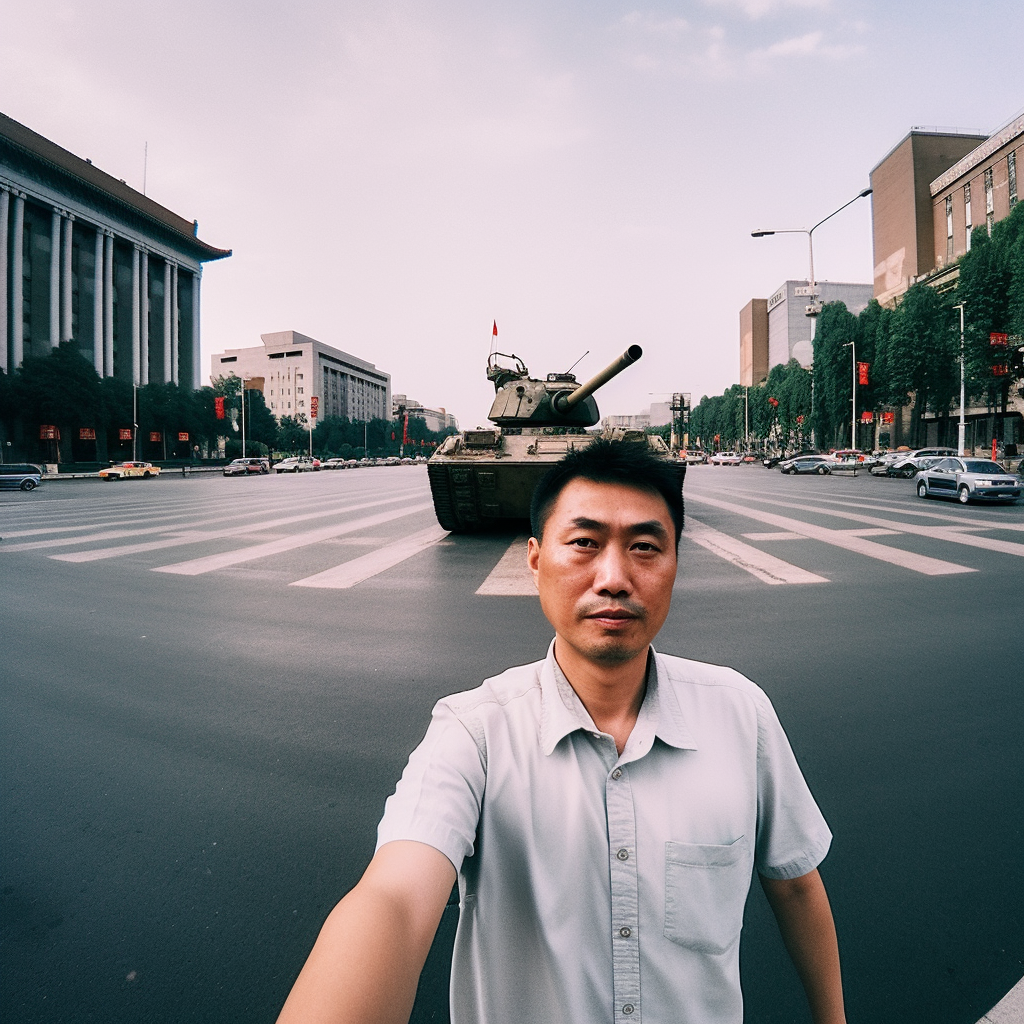Update 9/21/2023: Google says it has removed the AI-generated selfie from Knowledge Graph and Knowledge Panels, where it was appearing, after 404 Media reached out for comment and first published this story.
“On Google Search, we build our systems to show helpful and high quality information, while giving users the tools that they need to make sense of what they find online,” a Google spokesperson told 404 Media. “Given the scale of the open web, however, it’s possible that our systems might not always select the best images regardless of how those images are produced, AI-generated or not. In this case, we took action to remove the image from the Search feature, as our policies for this feature don’t allow inaccurate content on public interest topics like this.”
The original story follows below:
The first thing you’ll see if you search Google for “tank man” right now will not be the iconic picture of the unidentified Chinese man who stood in protest in front of a column of tanks leaving Tiananmen Square, but an entirely fake, AI-generated selfie of that historical event.
While the AI-generated selfie doesn’t appear to be deliberate misinformation, it highlights an inherent problem with the current state of generative AI and the internet: It is exceedingly easy to use AI tools to generate endless images, text, and audio with little more than a click of a button, and as this content floods every online platform, we, and the platforms we use to surface information, still don’t have a good way to identify and differentiate it from human-made content, manually or automatically.
Google is pulling the image from a 6 month-old Reddit thread from the r/Midjourney community, named after the text-to-image AI tool and company.
"Feeling brave, might be murdered by evil regime later #Liberty,” the first comment on that Reddit thread reads.
We don’t know why Google is currently presenting this AI selfie as the first result, but the search engine doesn’t strictly forbid AI-generated content—indeed for some searches a Google user may specifically want to find an AI-generated image. But that isn’t what is happening here; the AI selfie is the top result when simply searching for “tank man” by itself.
“Google's ranking systems aim to reward original, high-quality content that demonstrates qualities of what we call E-E-A-T: expertise, experience, authoritativeness, and trustworthiness,” Google search’s guidance about AI-generated content says. “Our focus on the quality of content, rather than how content is produced, is a useful guide that has helped us deliver reliable, high quality results to users for years.”
Mostly, the company explains, Google is concerned about AI content being used to manipulate search results, degrading the experience for users.
However, in an FAQ section on the same page, Google says the following about how the company will address AI content that potentially propagates misinformation or contradicts consensus on important topics:
“These issues exist in both human-generated and AI-generated content. However content is produced, our systems look to surface high-quality information from reliable sources, and not information that contradicts well-established consensus on important topics. On topics where information quality is critically important—like health, civic, or financial information—our systems place an even greater emphasis on signals of reliability.”
To the question of why Google doesn’t ban AI content entirely, it says “Automation has long been used in publishing to create useful content. AI can assist with and generate useful content in exciting new ways.”
As well as being an iconic image in its own right, tank man has become something of a litmus test for shitty technology. In June 2021, 404 Media co-founder Joseph Cox covered how Microsoft’s search engine Bing was censoring image results for a search of “tank man” even when performing the search from the U.S. That censorship came during the anniversary of the Tiananmen Square crackdown. The issue extended to image searches on Yahoo and DuckDuckGo, which both use Bing. At the time, Microsoft told Joseph that “This is due to an accidental human error and we are actively working to resolve this.”


